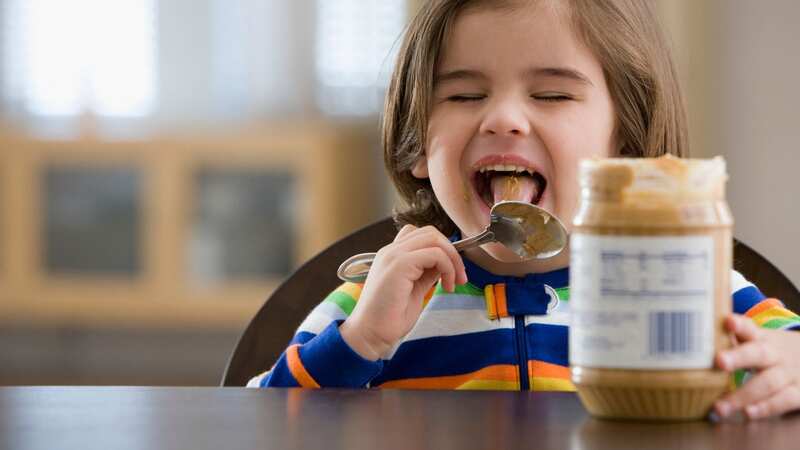Babies should be given peanut butter early to ward off allergies, scientists say

Peanut butter should be given to babies at a younger age to almost eradicate an epidemic of allergies, scientists say.
A review concluded that 10,000 babies a year will avoid the potentially life-threatening condition if peanuts are introduced from four months instead of the current guidance of six.
Until the last decade, the advice was to avoid them for the first three years, in the belief that eating them as an infant could cause the allergy.
This meant peanut allergies increased threefold in recent decades.
Review author Prof Graham Roberts, of the University of Southampton, said: “It does look as if the epidemic of peanut allergy we’ve had in the UK is because we haven’t been feeding them to infants and small children.
 Teachers, civil servants and train drivers walk out in biggest strike in decade
Teachers, civil servants and train drivers walk out in biggest strike in decade
“The deliberate avoidance of peanuts has understandably led to parental fear of early introduction.
“But this latest evidence shows that applying simple, low-cost, safe interventions to the whole population would deliver vast benefits for future generations.”
In trials conducted for the review, allergy rates were slashed in babies given one heaped teaspoon of peanut butter three times a week.
Researchers believe the updated UK guidance would cut peanut allergies in the population by 77%.
 Allergy rates were slashed in babies given peanut butter three times a week (Getty Images/EyeEm)
Allergy rates were slashed in babies given peanut butter three times a week (Getty Images/EyeEm)The review concluded that 10,000 of the 13,000 babies who develop the allergies in the UK each year might not if the NHS advised earlier introduction.
Prof Gideon Lack, of Guy’s and St Thomas’ NHS Foundation Trust, said: “The benefits of introducing peanut products into babies’ diets decreases as they get older.
“There is a narrow window of opportunity to prevent an allergy from developing.”
One in 50 children in the UK now have the allergy which sees the body mistake peanut as something dangerous and react to it.
This can involve swelling of the lips, and itchy rash and in some cases problems breathing.
The current UK guidance to wait until six months before introducing peanut dates from 2018. Scientists are calling for it to be reviewed.
 Greggs, Costa & Pret coffees have 'huge differences in caffeine', says report
Greggs, Costa & Pret coffees have 'huge differences in caffeine', says report
Researchers modelled that updated UK guidance would cut peanut allergies in the population by 77%.
In Israel, where babies are commonly given a peanut-based snack called Bamba, peanut allergies are almost unheard of.
The new analysis, published in the Journal of Allergy and Clinical Immunology, relied on two large randomised control trials.
The first Learning Early About Peanut Allergy (LEAP) trial involved 640 children from the UK between 4 and 11 months of age who were identified as high risk for peanut allergy.
The second study called Enquiring About Tolerance (EAT) involved 1,303 children from England and Wales.
It found that introducing babies to six foods - milk, peanut, sesame, fish, egg, wheat - between four and six months of age could reduce the risk of allergies developing.
Peanut allergy rates were slashed in babies given one heaped teaspoon of peanut butter three times a week.
The review concluded that 10,000 of the 13,000 babies which develop peanut allergies in the UK each year could see this prevented if the NHS advised earlier introduction
Prof Roberts added: “This allergy starts very rapidly with an itchy rash, face swelling and breathing issues.
“If they've got breathing issues, that's anaphylaxis and the treatment for this is an adrenaline injector.
“It is life threatening and affects around 2% of children in this country.
“It’s a major issue because children have to avoid foods and they're constantly worried about eating some peanut hidden in their food and having a potentially life threatening reaction.
“So it’s a big problem that needs to be sorted out.”
Scientists advise that breastfeeding should continue alongside introducing peanut products from four months, alongside other foods, such as pulped vegetables.
They recommend smooth peanut butter or “peanut puff” snacks but not chopped peanuts - due to the choking risk.
The research team in very rare cases infants may appear sleepy or have breathing difficulties and advise that if this happens parents should call 999.
Read more similar news:
Comments:
comments powered by Disqus
































